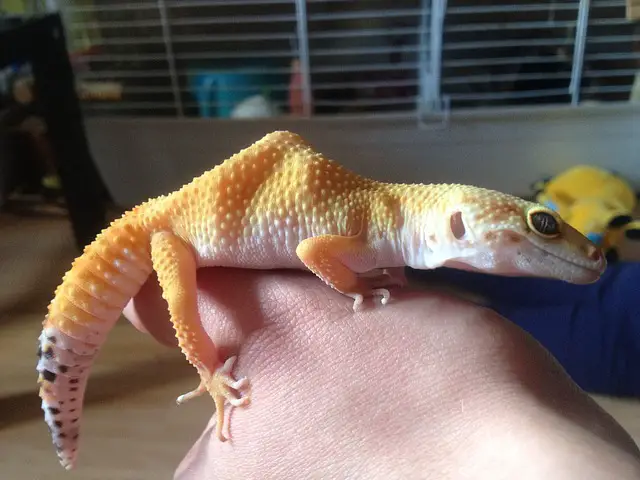If you’re a leopard gecko enthusiast, you may be wondering if you can use a chicken incubator to hatch your eggs. The answer is yes – you can use a chicken incubator for leopard gecko eggs, but there are some things you need to know first! In this blog post, we will discuss the basics of using a chicken incubator for leopard gecko eggs, including what you need to get started and how to care for the eggs.
What you need to know
One of the most important things to know when using a chicken incubator for leopard gecko eggs is that the temperature needs to be carefully monitored. Leopard geckos are native to warm climates, so their eggs require higher temperatures than chicken eggs. We recommend using a digital thermometer to keep track of the temperature inside the incubator, and making sure that it stays between 82-88 degrees Fahrenheit.
Another important consideration when using a chicken incubator for leopard gecko eggs is humidity. Leopard gecko eggs need higher levels of humidity than chicken eggs, so it’s important to make sure that the incubator is properly humidified. We recommend using a reptile fogger or misting system to keep the air inside the incubator moist.
If you follow these guidelines, you can successfully use a chicken incubator to hatch your leopard gecko eggs! Just remember to be careful with the temperature and humidity, and your eggs should hatch just fine.
What incubator is recommended and why?
There are different types of incubators that you can use for hatching eggs. The most important factor to consider when choosing an incubator is the climate or environment in which the eggs will be hatched. Incubators come in both manual and automatic settings, with some also having a digital display for more accurate temperature control. When it comes to incubating leopard gecko eggs, you’ll want to find an incubator that has a humidity level gauge as well as a thermometer, as this will allow you to keep track of the humidity and temperature levels inside the incubator more easily. You should also try to find an incubator that is easy to clean and doesn’t have any difficult-to-reach nooks and crannies, as this can make it difficult to keep the incubator sanitary. The best incubator for hatching leopard gecko eggs is the Hovabator 1588 egg incubator, which has a digital display for temperature control and a humidity level gauge to help you monitor the environment inside the incubator. It’s also easy to clean and comes with an automatic turner to ensure even heating of the eggs.
To see the Hovabator 1588 egg incubator on Amazon go HERE
What you need to get started and how to care for the eggs.
To get started, you’ll need an incubator, a digital thermometer, and a reptile fogger or misting system. You can find all of these items at your local pet store or online. Once you have all of your supplies, setting up the incubator is simple. Just place the eggs inside the incubator, set the temperature to 82-88 degrees Fahrenheit, and make sure that the humidity levels are kept high. We recommend using a reptile fogger or misting system to keep the air inside the incubator moist.
Once the eggs are in the incubator, it’s important to check on them regularly to make sure that they are developing properly. The best way to do this is to candling the eggs, which is a process of shining a light on the egg to see if you can make out any details inside. If you notice that the eggs are not developing correctly, you may need to take them out of the incubator and try again later.
If you follow these guidelines, your leopard gecko eggs should hatch successfully in about 58-65 days.
Conclusion.
So, can you use a chicken incubator for leopard gecko eggs? The answer is yes, but it’s important to monitor the temperature and humidity levels closely to ensure that the eggs hatch successfully. By following these guidelines, you can create the perfect environment for your leopard gecko eggs and watch them hatch into beautiful little babies!
FAQ’s
Q: Can I use a chicken incubator for leopard gecko eggs?
A: Yes, but you’ll need to monitor the temperature and humidity levels carefully.
Q: What type of incubator is best for leopard gecko eggs?
A: The best incubator for leopard gecko eggs is the Hovabator 1588 egg incubator, which has a digital display for temperature control and a humidity level gauge to help you monitor the environment inside the incubator.
Q: How long does it take for leopard gecko eggs to hatch?
A: Leopard gecko eggs usually hatch in 58-65 days.
Q: Do I need anything special to care for leopard gecko eggs?
A: You’ll need to keep the temperature and humidity levels inside the incubator at a consistent level. We recommend using a reptile fogger or misting system to keep the air inside the incubator moist. You should also check on the eggs regularly by candling them to make sure that they are developing properly.




